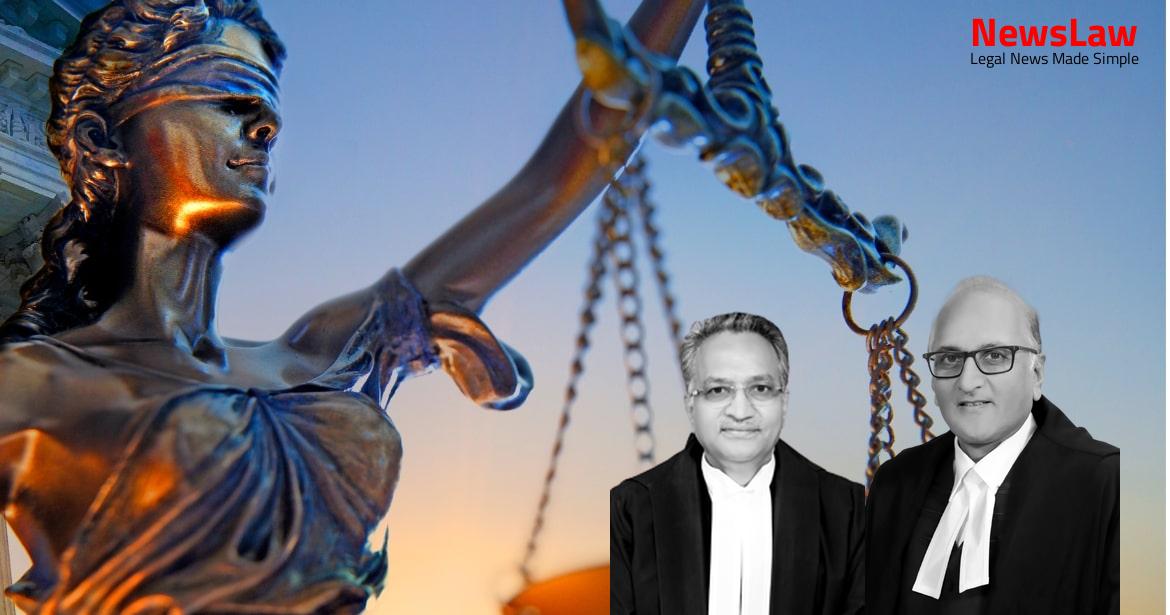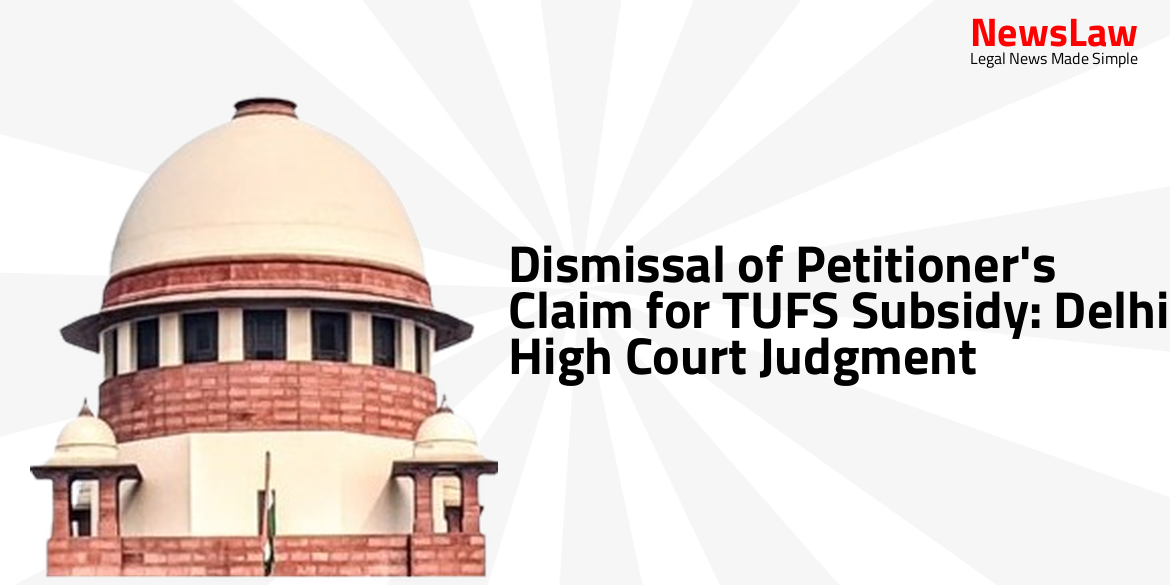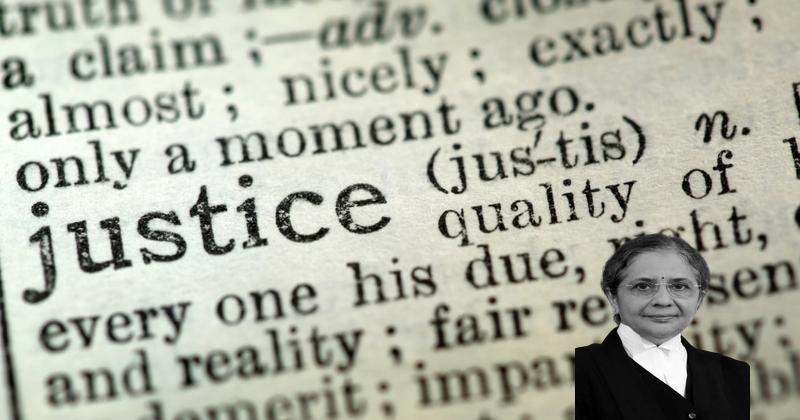Delve into the legal analysis of delay and laches in a writ petition case where the court examined the significance of timely actions in legal proceedings. The court’s assessment focused on the impact of delay in filing the petition and how it influenced the outcome of the case. Follow the discussion on the crucial aspect of laches and its implications in legal contexts.
Facts
- The appellant-State challenged the writ petition filed by the appellants, claiming it was not properly discussed by the learned Single Judge.
- The appellants sought various reliefs in the writ petition, including restraining the respondents from interfering with the possession of the lands and granting other suitable reliefs.
- The backdrop of the writ petition was described, highlighting the notifications and actions taken by the competent authority regarding the surplus/excess land.
- The appellants claimed to be legal representatives of the original owner of the land, Parsottambhai Patel, and filed statements under the 1976 Act.
- The possession of the surplus/excess land was taken over under a Panchanama, and subsequent notifications and notices were issued regarding compensation and possession.
- Following the filing of an application under Section 21 of the 1976 Act, the proceedings were remanded, and the Urban Land (Ceiling and Regulation) Repeal Act, 1999 came into force.
- The appellants sought further reliefs in the writ petition, challenging the possession Panchnama dated 20.3.1986 and seeking the delivery back of possession of the lands.
- The objections raised by the State regarding the delay in filing the writ petition were considered by the Division Bench, noting the actions taken by the competent authority and the legal representatives involved.
- The Division Bench upheld the rejection of the application under Section 21 of the 1976 Act against all petitioners except Ramanbhai Purshottambhai Patel.
- It was determined that the application was barred by limitation as it was filed 1139 days after the commencement of the 1976 Act.
- The appeal by the State was allowed, the writ petition was dismissed, and the possession of the land was deemed to be rightfully taken over by the State’s competent authority on 20.3.1986.
- The Division Bench noted that not all landowners had challenged the decision of the competent authority.
Also Read: Land Acquisition Challenges for Integrated Infrastructure Project
Arguments
- Mere issuance of notification under Section 10(3) of the 1976 Act regarding deemed vesting of the land in the State is not sufficient under the repeal Act.
- The actions of authorities under the 1976 Act are impermissible in law and vitiated.
- Case law such as Darothi Clare Parreira vs State of Maharashtra is cited to support the argument.
- Section 21 operates ‘in spite of Section 10’ as per South India Corporation (P) Ltd. vs Secretary, Board of Trivandrum & Anr.
- Quantum of excess land must be determined before surrender or seeking exemptions under Sections 20, 21, or 22 as per Special Officer & Competent Authority, Urban Land Ceilings, Hyderabad & Anr.
- Not all landowners were served notices regarding actions under Section 10 of the 1976 Act, as per various cases cited.
- The physical possession of the land is disputed and mere paper-possession is not sufficient.
- Possession Panchnama is deemed void and illegal in absence of physical possession as per various judgments cited.
- Abatement of State actions under the 1976 Act is argued if de facto possession is not with the State.
- Possession Panchnama can’t be recorded until the Section 21 application is finally decided.
- Revenue records show continued possession with appellants even after the Possession Panchnama in 1986.
- The authenticity and reliability of the Panchnama dated 20.3.1986 is questioned.
- The State argues that the writ petition filed by the appellants was severely delayed.
- The State claims that the petition suffers from laches.
Also Read: Analysis of Legal Issues in Property Dispute Case
Analysis
- Shivgonda Anna Patil v. State of Maharashtra dealt with a writ petition under Article 226 for reopening proceedings after ten years, which was rightly dismissed by the High Court.
- The case of The Municipal Council, Ahmednagar v. Shah Hyder Beig emphasized the equitable doctrine of ‘delay defeats equity’ in Article 226 petitions.
- In the case of Hariram, it was ruled that the requirement of giving notice under Section 10(5) and/or 10(6) is mandatory for landowners to prevent dispossession without notice.
- The judgments in Ramanlal Bhailal Patel vs. State of Gujarat and Har Pyari vs. IInd Additional Judge, Moradabad were relied upon for legal precedence.
- The Division Bench was right in concluding that the writ petition filed by the appellants after 14 years was barred by delay and laches.
- The Possession Panchnama was prepared without site visitation, indicating deficiencies in the process.
- The appellants did not challenge the Possession Panchnama in a timely manner, despite it being mentioned in earlier proceedings.
- The appellants’ delay in filing the writ petition in 2001 without a plausible explanation was a significant factor in the case.
- The lack of disclosure as to why the appellants did not challenge the Possession Panchnama earlier weakened their case.
- The respondents relied on various cases to establish the legal position regarding the difficulty of taking physical possession of land under compulsory acquisition.
- The normal mode of taking possession involves drafting a Panchnama in the presence of Panchas, delivering possession, and giving it to the beneficiaries.
- Retention of possession after this process would be considered illegal or unlawful.
- The respondents also referred to specific paragraphs in the Bhaskar Jyoti Sarma case to support their argument.
- The present appeal lacks merits and is deemed devoid of any substance.
- The Division Bench of the High Court’s decision should be upheld as the writ petition was found to be barred by laches.
- The crucial aspect of writ petition being time-barred was neglected by the learned single Judge.
- There is no need to discuss other contentions raised by the appellants or the respondent-State on their merits.
Also Read: Legal Analysis on Levy of Customs Duty on Non-Excisable Goods Sold in Domestic Tariff Area by an EOU
Decision
- Pending interlocutory applications disposed of
- Respective shares of the four noticees specified
- In absence of notice, plea regarding vesting of land for land owners not considered
- Appeal dismissed with no order as to costs
Case Title: KAPILABEN AMBALAL PATEL HEIRS OF DECEASED AMBALAL P. PATEL THROUGH ATTORNEY RAJESHBHAI RAMANBHAI PAT Vs. THE STATE OF GUJARAT REVENUE DEPARTMENT THROUGH SECRETARY (2020 INSC 386)
Case Number: C.A. No.-006380-006380 / 2012



